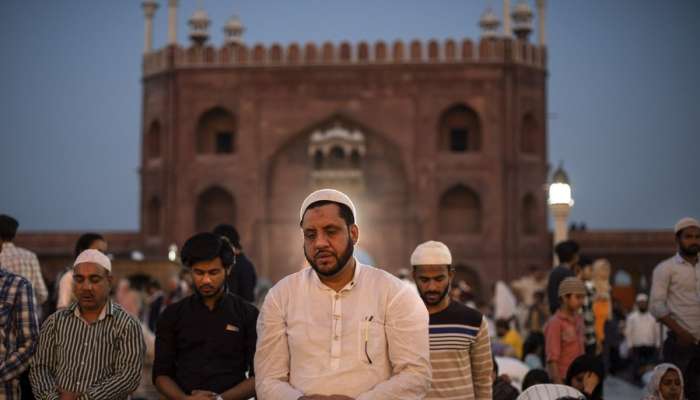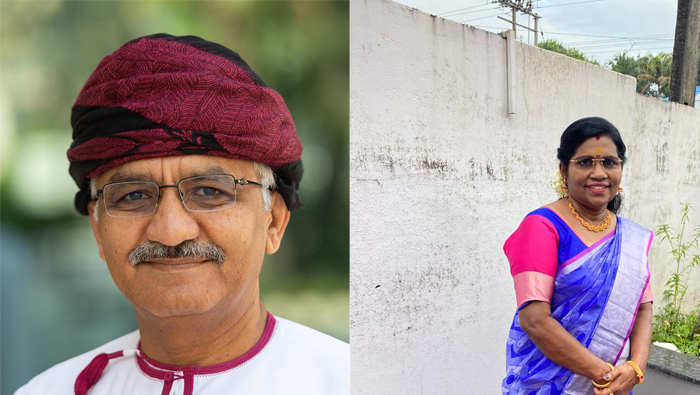

MUSCAT: One is a doctor who has served in the Sultanate of Oman for more than three decades. The other, a homemaker, has also been living in the country for more than 30 years.
However, both have one more thing in common – fasting throughout the holy month of Ramadan – despite following other faiths.
Col (Dr) Narayan Ramachandran (retd) and Ajitha Subramanian have been fasting during the holy month of Ramadan for the past many years and feel that “the experience gained through fasting has made them better persons”.
As the holy month completed 15 days on Friday, Times of Oman spoke to the fasting non-Muslims to get an insight on the reasons for fasting.
Ramchandran, a well-known orthopaedic surgeon, said: “I started to regularly fast during Ramadan from the year 2000. It all started a year earlier when I was invited to a post-sunset feast (iftar) gathering at an industrial camp in Ghala. I had gone to that iftar after my lunch and evening tea. But what I saw there moved me. I saw the piety on the faces of those workers who waited patiently for the call of prayers before breaking the fast.”
The doctor, who has been actively involved with many social and charitable causes, continued: “I then decided that whenever I attend an iftar, I would keep a fast and I did that in 1999. But from 2000, I decided to keep fast throughout the holy month and have been fasting except for a couple of years when my health didn’t permit it.”
He added: “I feel good fasting during the holy month as it gives me immense satisfaction. When I see all my colleagues at the workplace fasting, I feel it is not right for me to eat or drink. I feel much better after fasting and it is not tough doing it even if I am a Hindu. I share the values of fellow people of different faiths and there is a feeling of wellbeing.
Teachings of Ramadan
Ramachandran said: “Fasting during Ramadan is indeed special as everyone around you is fasting. It is also a month that teaches us how to live the remaining 11 months of the year. I firmly believe that one should not forget the teachings of Ramadan during the rest of the year. We should follow the principles of the holy month all the time.”
For Ajitha, who is 60 years of age and a Hindu, it was the desire to share the feeling of Ramadan with fellow people in Oman that led her to start fasting.
“I wanted to experience how one feels while fasting without even water throughout the day. Once I did, I felt good and since then, I have been regularly doing it for the past ten years.”
“It is also a spiritual journey when one fasts and I feel good when I fast during the holy month. It gives me a lot of satisfaction,” said Ajitha, who hails from Thrissur in the southern Indian state of Kerala.
She arrived in Oman in 1990 and joined her husband who has business interests in Ibri in Al Dhahirah Governorate.
She said: “Oman is a country that treats people equally with respect and dignity. So, I thought when I stay in this country, I should go by its tradition and culture.”
Ajitha said that she never forced her kids to do fasting but would like to continue “as long as my health permits.”
“While fasting is certainly one component of the month, it is hardly the sole motivation. Ramadan is a time of spiritual discipline that is dedicated to prayer, charity and self-reflection,” she added.
Ajitha said: “I personally feel that fasting during Ramadan makes me calm and composed. Personally, it is also an exercise that helps us to control our mind and fight cravings.”
Another resident of Oman, spoke on condition of anonymity. A Hindu, she has been fasting for the past five years, and said: “Although the experience of Muslims is undoubtedly different, the benefits of fasting don’t elude non-Muslim participants. When you’re fasting, you get an immense sense of clarity of mind and you become a lot less anxious.”
“During the month of Ramadan, I’m forced to slow down. I simply don’t have the energy to carry on working at my full pace. I genuinely like the experience because it’s good discipline — like a refresh for the year. It is a nice way to detoxify our mind and bring positivity in life,” she added.
“I fast because I want to pay respect to the belief system and the culture of the country I am in. Secondly, most of my colleagues are Muslims and all are fasting.”
In observance of the holy month of Ramadan, Muslims fast for 29 or 30 days from dawn to sunset.